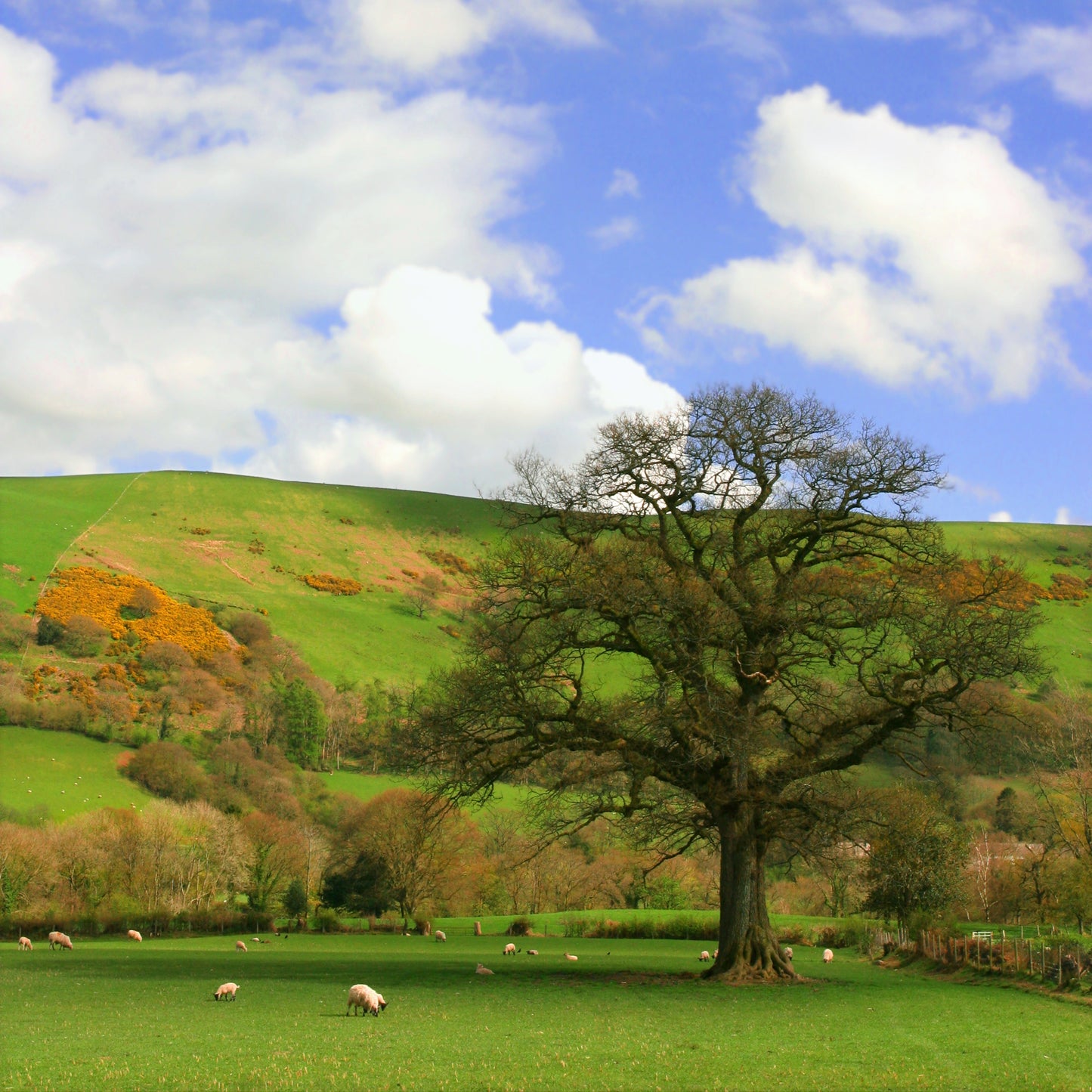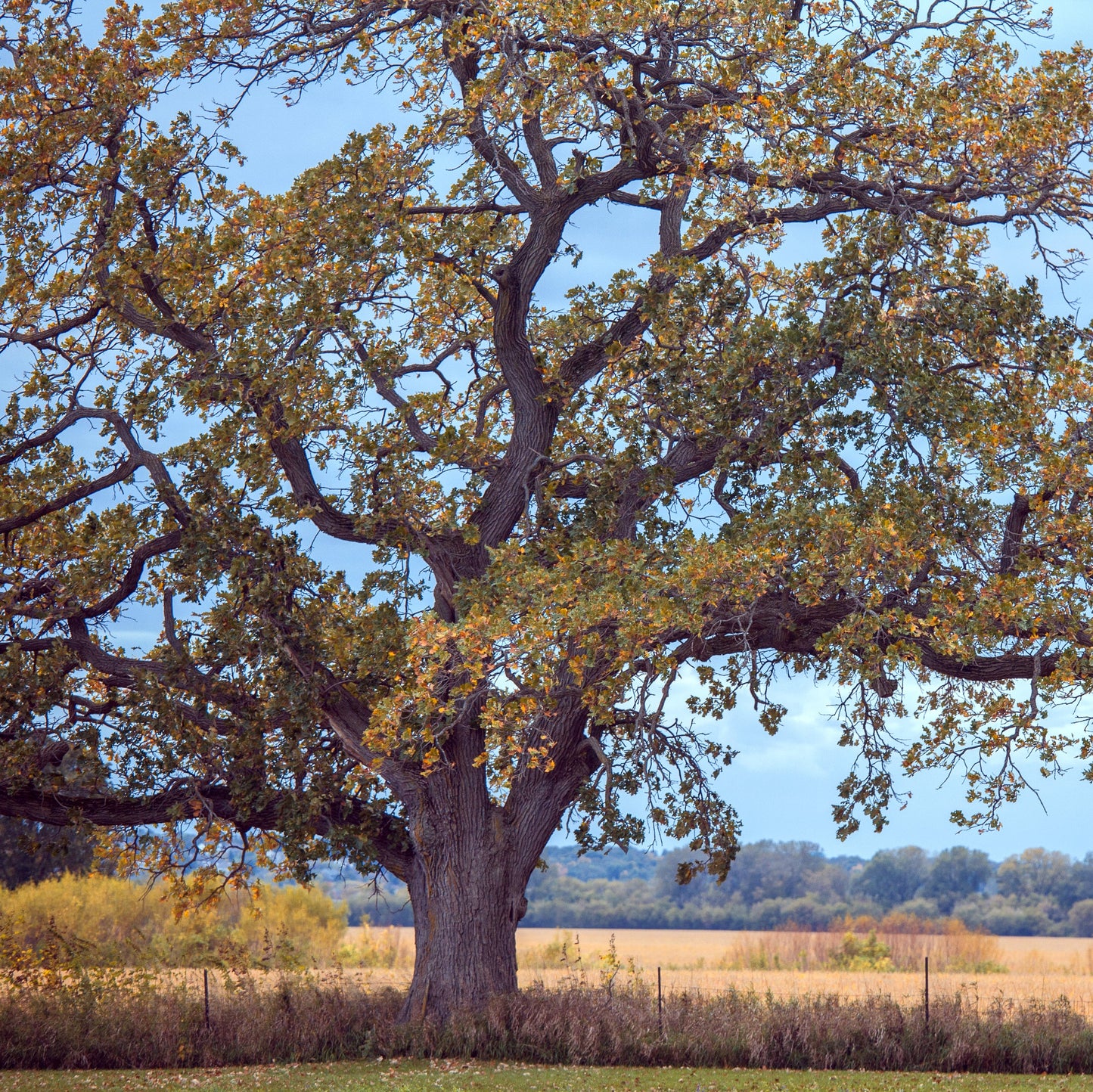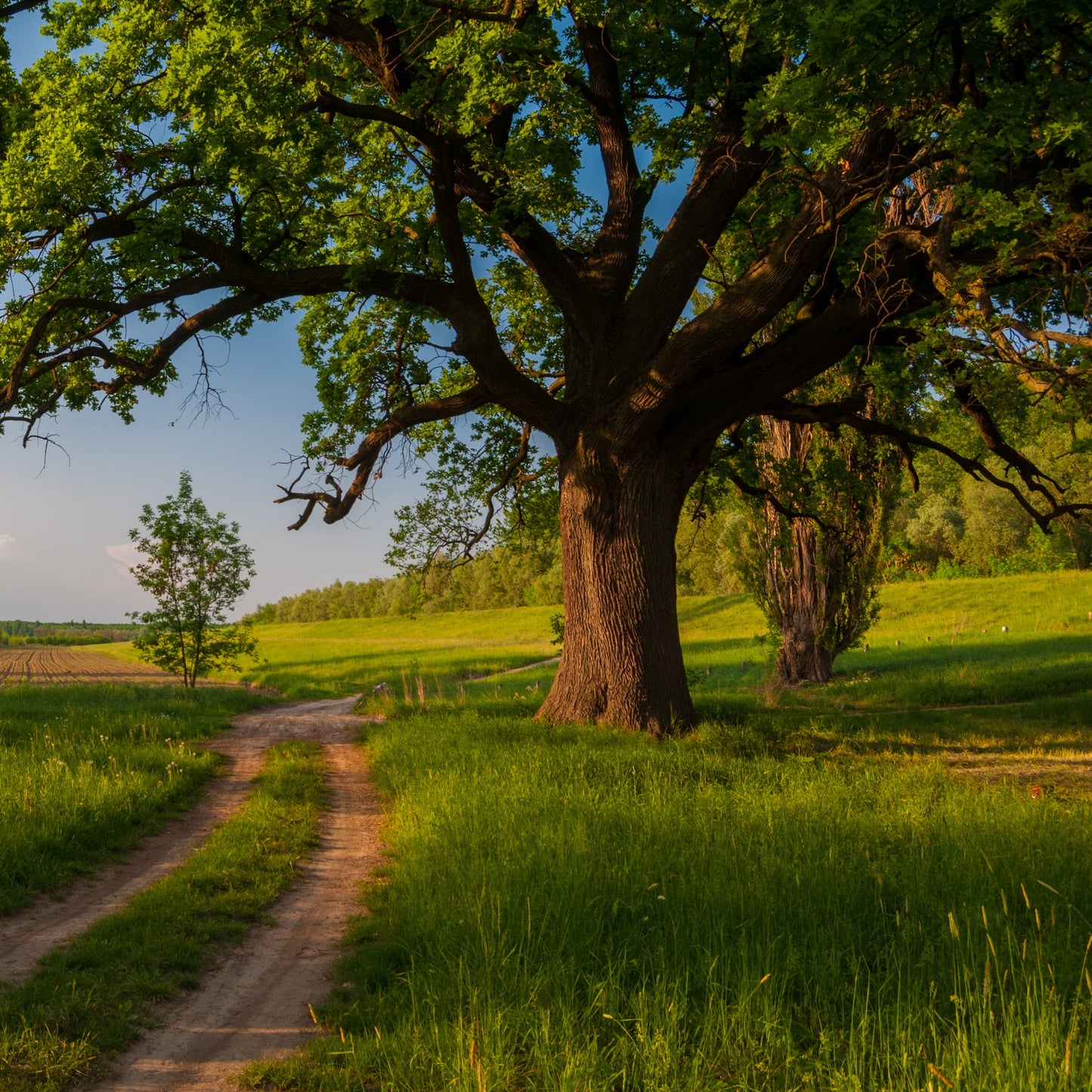Limited Quantities - Reserve Now For Fall
-
Beginner Zones 3-9

-

-

White Oak Tree
White Oak Tree
Couldn't load pickup availability
Quercus alba
White Oak Tree
The White Oak is one of North America's most iconic and majestic native trees, revered for its strength, longevity, and ecological importance. With a broad, rounded crown and silvery-white bark, this slow-growing giant provides exceptional shade, rich fall color, and vital habitat for hundreds of species.
Ideal for large landscapes, restoration projects, or legacy plantings, the White Oak offers unmatched environmental value and timeless beauty.
White Oak Tree Overview
| Attribute | Details |
|---|---|
| 🌿 Botanical Name | Quercus alba |
| 🏷️ Common Names | White Oak |
| 🌳 Mature Height | 50–80 feet (can exceed 100' in wild) |
| 🌐 Mature Width | 50–80 feet |
| 📈 Growth Rate | Slow to moderate (12–24" per year) |
| ⏳ Lifespan | 200–400+ years |
| 🧊 USDA Zones | 3–9 |
| ❄️ Chill Hours | 500–1,000 hours |
| ☀️ Sun Preference | Full sun |
| 🧱 Soil Type | Deep, moist, well-drained loam or clay |
| ⚖️ Soil pH | Slightly acidic to neutral (5.5–7.0) |
| 💧 Water Needs | Moderate; tolerates occasional drought once mature |
| 🌸 Flower Color | Inconspicuous greenish catkins (spring) |
| 🍒 Fruit Type | Light brown acorns, 1-year maturation |
| 🐝 Pollinators | Wind-pollinated; supports specialist pollinators indirectly |
| 🌿 Growth Habit | Broad-spreading crown with strong horizontal limbs |
| ↔️ Spacing | 40–60 ft apart for optimal canopy development |
| 🏡 Landscape Uses | Shade tree, reforestation, native restoration, specimen tree |
| 🧹 Maintenance Level | Low once established |
Environmental Benefits
🌿 Supports over 500 species of butterflies and moths
🌰 Produces acorns that feed deer, turkeys, squirrels, and birds
🌳 Sequesters carbon and improves air quality long-term
🐦 Provides nesting, shelter, and food for countless wildlife species
🌧️ Helps prevent erosion and enhances soil health over time
Pros & Cons
| ✅ Pros | ⚠️ Cons |
|---|---|
| 🌳 Long-lived, iconic native shade tree | 🐢 Slow initial growth compared to other trees |
| 🌰 High wildlife value and food source | 🌰 Acorns may be messy in high-traffic areas |
| 🍁 Gorgeous red-bronze fall foliage | 🐛 May be susceptible to oak wilt or borers in stressed areas |
| 🌿 Extremely sturdy and storm-resistant | 🌲 Requires ample space to reach full potential |
| 🧬 Deep ecological role in native ecosystems | 💧 Young trees need deep watering during establishment |
Planting & Care Guide
🛁 Water deeply before and after planting to reduce transplant stress
🕳️ Dig hole 2–3x wider than root ball; avoid planting too deep
🌾 Mulch 2–3 inches around base, keeping clear of trunk
💦 Water consistently for first 2–3 years to encourage deep roots
✂️ Minimal pruning needed; shape in winter if necessary
🧪 Fertilize sparingly with compost or low-nitrogen mix in spring
The White Oak Tree is a legacy plant—offering a lifetime of shade, beauty, and habitat. Its slow but steady growth rewards patience with unmatched strength and ecological impact. Whether you're planting for future generations or restoring native woodlands, White Oak stands as a symbol of resilience and natural heritage.
Share






